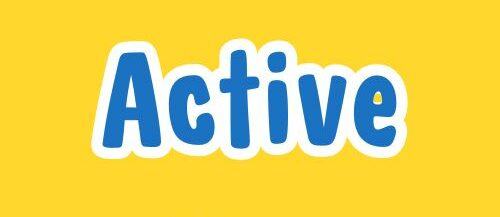In today’s fast-paced and ever-evolving job market, career development is crucial for success. Whether you’re aiming for a promotion, considering a career change, or simply looking to enhance your skills, the right career development resource can make all the difference. But with so many options available, how do you choose the best one for your unique goals? This comprehensive guide will help you navigate the landscape of career development resources and find the perfect fit for your needs.
Understanding Career Development Resources
Career development resources come in various forms, including online courses, mentorship programs, workshops, certifications, and more. These resources are designed to help individuals improve their skills, gain new knowledge, and advance their careers. The key to choosing the best resource lies in understanding what each type offers and how it aligns with your career objectives.
Types of Career Development Resources
1. Online Courses and E-Learning Platforms
Online courses have become a popular choice for career development due to their flexibility and accessibility. Platforms like Coursera, Udemy, LinkedIn Learning, and edX offer a wide range of courses on various subjects.
Pros:
- Flexibility: Learn at your own pace and on your own schedule.
- Variety: Access to a diverse range of topics and skills.
- Cost-Effective: Many courses are affordable or even free.
Cons:
- Self-Motivation Required: You need to stay disciplined to complete the course.
- Quality Variation: The quality of courses can vary widely, so choose reputable platforms.
How to Choose: Look for courses that are relevant to your career goals, have high ratings, and offer certification. Read reviews and check the credentials of the instructors to ensure quality.
2. Certifications and Professional Development Programs
Certifications can boost your credibility and open doors to new opportunities. They are particularly valuable in fields like IT, project management, and finance.
Pros:
- Industry Recognition: Certifications are often recognized and valued by employers.
- Specialization: Focus on specific skills or knowledge areas.
Cons:
- Cost: Certification programs can be expensive.
- Time Commitment: Requires significant preparation and study time.
How to Choose: Select certifications that are respected in your industry and align with your career aspirations. Consider the time and financial investment required and weigh it against the potential benefits.
3. Mentorship Programs
Mentorship involves a relationship between a more experienced professional (mentor) and someone seeking guidance (mentee). It’s a personalized approach to career development.
Pros:
- Personalized Guidance: Receive tailored advice and feedback.
- Networking Opportunities: Build connections with industry professionals.
Cons:
- Availability: Finding a suitable mentor can be challenging.
- Time Intensive: Both the mentor and mentee need to invest time in the relationship.
How to Choose: Seek mentors with experience in your desired field and a proven track record. Look for programs through professional organizations or networks related to your industry.
4. Workshops and Seminars
Workshops and seminars are often short-term and focused on specific skills or topics. They can be in-person or virtual.
Pros:
- Interactive Learning: Engage in hands-on activities and discussions.
- Networking: Opportunity to meet other professionals.
Cons:
- Short-Term Focus: May not provide in-depth knowledge.
- Cost and Location: Some may be expensive or not available in your area.
How to Choose: Choose workshops that address specific skills or knowledge gaps you have. Check the credentials of the speakers and the reputation of the hosting organization.
5. Books and Publications
Books and industry publications can be valuable resources for self-directed learning. They provide in-depth knowledge on various topics.
Pros:
- Comprehensive Information: Detailed and thorough content.
- Self-Paced Learning: Study at your own pace.
Cons:
- Less Interactive: No immediate feedback or interactive elements.
- Time-Consuming: Requires a significant time commitment to read and absorb.
How to Choose: Select books and publications that are well-reviewed and written by credible authors. Look for recent publications to ensure the information is up-to-date.
Matching Resources to Your Career Goals
1. Assess Your Career Goals
Before choosing a resource, clearly define your career goals. Are you looking to advance in your current role, switch to a new field, or develop a specific skill? Understanding your objectives will help you select the most relevant resources.
2. Identify Your Learning Style
Everyone has a preferred learning style. Some people thrive in structured environments, while others prefer self-paced learning. Consider whether you learn best through hands-on experiences, visual content, or written material.
3. Evaluate the Quality of Resources
Research the credibility of the resource provider. Look for reviews, testimonials, and ratings. Ensure that the content is created by experts and is recognized in your industry.
4. Consider Your Budget and Time
Evaluate the cost and time commitment of each resource. Determine what fits within your budget and schedule. Sometimes, free or low-cost options can be just as effective as more expensive ones.
5. Seek Recommendations
Ask colleagues, mentors, or industry professionals for recommendations. They may have firsthand experience with valuable resources and can provide insights into what works best.
Also Read: Insider’s Guide: Top Fitness Apps for Personalized Workout Plans
Maximizing the Benefits of Career Development Resources
1. Set Clear Objectives
Set specific, measurable, achievable, relevant, and time-bound (SMART) goals for what you want to achieve with the resource. This will help you stay focused and motivated.
2. Create a Learning Plan
Develop a plan that outlines how you will use the resource, including a timeline and milestones. This will help you stay organized and track your progress.
3. Apply What You Learn
Put the knowledge and skills you gain into practice. Apply them in your current role or through personal projects. This will reinforce your learning and demonstrate your capabilities.
4. Seek Feedback
Regularly seek feedback from mentors, peers, or supervisors to gauge your progress and make necessary adjustments. Constructive feedback can provide valuable insights and help you improve.
5. Stay Updated
Career development is an ongoing process. Stay updated with industry trends and continue seeking new resources to keep your skills and knowledge current.
Bottom Line
Choosing the best career development resource involves assessing your goals, understanding your learning style, and evaluating the quality and relevance of available options. By carefully selecting and utilizing the right resources, you can enhance your skills, advance your career, and achieve your professional aspirations. Remember, career development is a continuous journey, and staying proactive and engaged will set you on the path to success.



